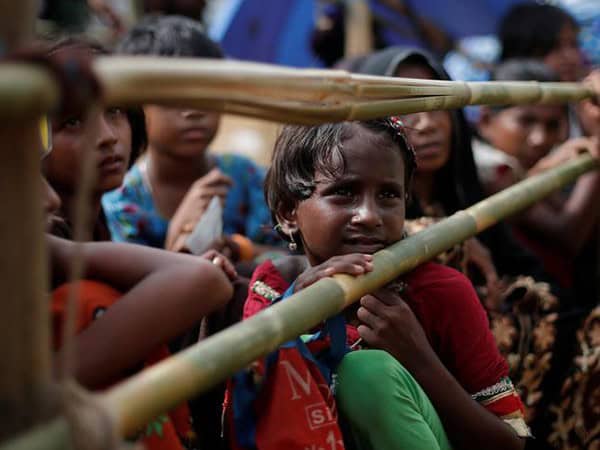New Delhi: The Supreme Court on Wednesday asked the Centre to respond to a fresh plea by two Rohingya refugees, alleging that the BSF was using “chilli and stun grenades” to stop the refugees from entering India.
A bench headed by Chief Justice Dipak Misra granted four weeks to the Centre to file its response to the interim application by the two Rohingya refugees, alleging that Border Security Force (BSF) was forcefully restraining fresh refugees, including children, disabled persons and pregnant women, from entering the Indian side.
The two refugees had earlier approached the top court against the government’s decision to deport Rohingya Muslims to Myanmar.
The bench, which also comprised Justices A M Khanwilkar and D Y Chandrachud, said “an interlocutory application has been filed by counsel for the petitioners in Writ Petition … A copy of the said application has been served on the assisting counsel to Tushar Mehta, ASG appearing on Wednesday for Union of India. The ASG shall file a response to the said application within four weeks. List the matters on March 7.”
During the brief hearing, lawyer Prashant Bhushan, appearing for Mohammad Salimullah and Mohammad Shaqir, alleged that the BSF was pushing back hapless refugees through “inhumane and degrading treatment” and in clear violation of “the non refoulement principle of customary international law”.
He said the Indian government must be prevented from stopping more Rohingyas from entering India because of the persecution faced by them in Myanmar.
“India can’t be the refugee capital of the world. We will take action when the contingency arises. These matters are best left to the government to decide. How can we allow everyone to cross the border,” the ASG said.
He opposed Bhushan’s submission saying it was not part of the pleadings of the main case and, moreover, the central government and its forces were performing their sovereign functions.
He said it was not the complaint of petitioners that the refugees were being sent back and the government was taking diplomatic steps to solve the problem. The court should permit it to discharge constitutional functions.
Bhushan alleged that the government had a policy to welcome Hindu and others community members, barring Muslims. Senior advocate Gopal Subramanium, appearing for National Human Rights Commission, said Rohingyas have a right to approach the court for enforcement of elementary rights like education, security and health care.
The two refugees, in their fresh plea, have sought protection and welfare of Rohingyas in India against the August 8, 2017 proposal of the MHA directing all states and UTs to expeditiously initiate deportation process against illegal immigrants from Rakhine.
“There is no government intervention to provide shelter and other basic amenities. By dismissing Rohingyas as illegal immigrants, the government has washed its hands off the problem,” the plea said.
It also said that the right to adequate standard of living has been recognised in 1948 Universal Declaration of Human Rights and it must be secured for Rohingyas. It sought a direction to the BSF to file a compliance report directly through MHA regarding their strict adherence to not push back policy for Rohingya refugees.
Meanwhile, the court ordered tagging a separate plea, filed by BJP leader Ashwini Kumar Upadhyay, favouring the Centre’s stand to identify and deport to Mayanmar around 40,000 illegal Rohingya Muslims staying in New Delhi.
Salimullah and Shaqir had approached the apex court opposing the Centre’s decision to deport over 40,000 refugees who came to India after escaping from Myanmar due to widespread discrimination, violence and bloodshed against the community there.
Various other pleas, including those by ex-RSS ideologue and Rashtriya Swabhiman Andolan leader K N Govindacharya, the CPI(M) youth wing Democratic Youth Federation of India (DYFI) and the West Bengal child rights body have been filed in the apex court on the matter.
The court had suggested to the Centre not to deport these refugees, but the Centre had urged that it should not be written in the order as anything coming on record would have international ramifications.
The Rohingyas, who fled to India after violence in the Western Rakhine State of Myanmar, were settled in Jammu, Hyderabad, Haryana, Uttar Pradesh, Delhi-NCR and Rajasthan.

